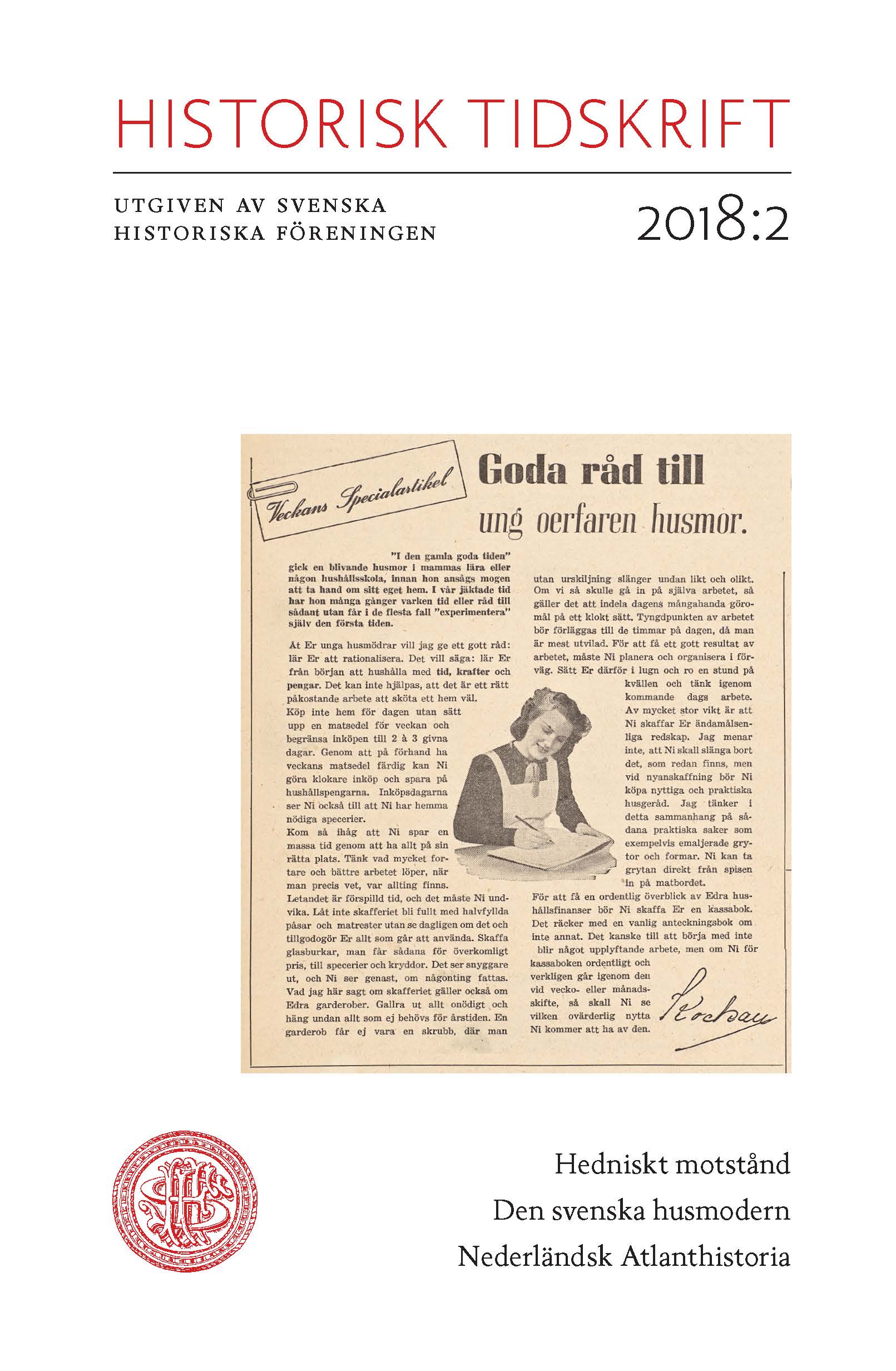Abstract
The educational content of housekeeping – An analysis of ICA-Kuriren 1942
In 1942 the practical knowledge of housekeeping in Sweden was formulated, legitimized and materialized largely under the influence of government actions. The period is characterized by ideals grounded in science and rationality, Second World War rationing and the societal project of folkhemmet, ”the people’s home.” The practice of housekeeping is investigated through an analysis of ICA-Kuriren, a periodical published by a consortium of food wholesalers, that was first issued in 1942 and was widely distributed to Swedish households. Located at the intersection of social history and the history of education, the focus is on the discursive construction of the figure of the ”housewife,” the most important agent in the sociopolitical and pedagogical process that aimed at changing practices of housekeeping. There were tensions in this discursive construction of the housewife between rational and non-rational thought, with the preference always being for the rational. It can be found in a variety of contrasts, between new and old knowledge and between the experienced and the inexperienced, and the knowledgeable and unknowledgeable housewife. Another tension was embedded in the encouragement to both be frugal and to buy and consume expensive items.

